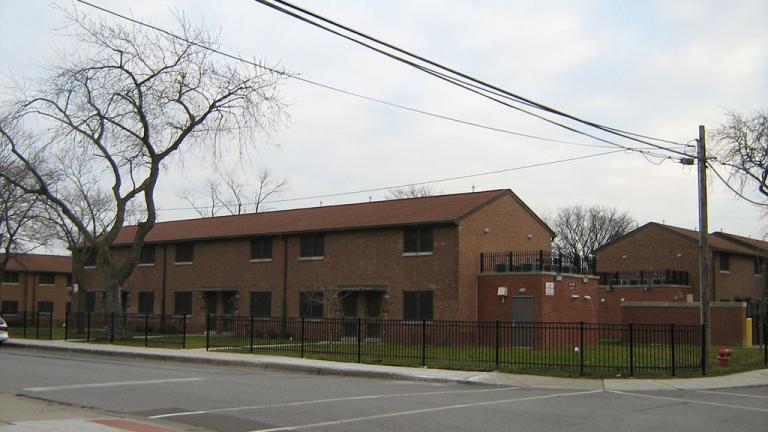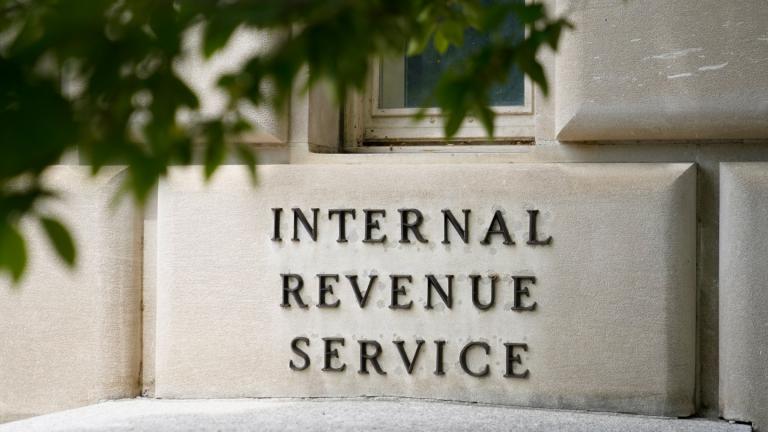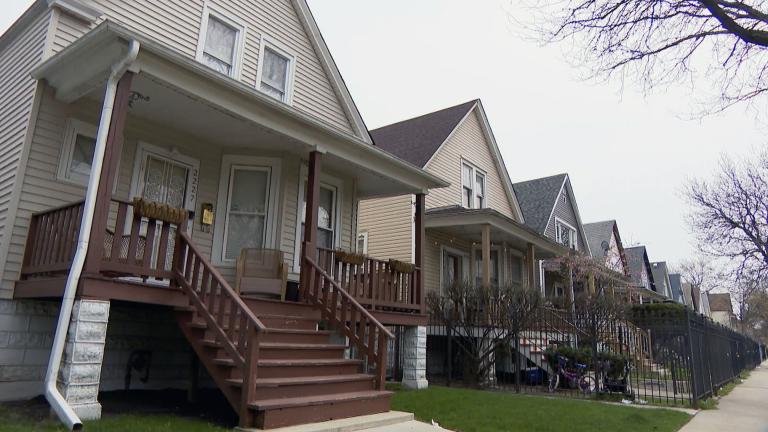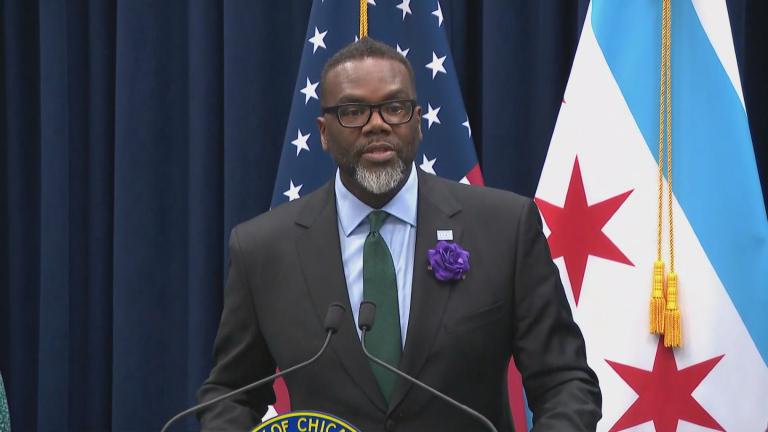Tuesday marks day two of the semi-annual Cook County tax sale.
As Chicago Tonight reported Monday, that's where people delinquent on their property taxes have their liens sold to private investors, who can then collect massive interest rates. A push to change the system by some public officials has simply raised more questions, such as: Why would state lawmakers nearly unanimously pass a bill to shorten the timetable property owners have to pay their taxes, especially when it hits homeowners facing financial hardship? And why does this system exist in the first place?
This issue is more confusing the more layers one peels back. The important initial takeaway right now is, a delinquent taxpayer whose property is caught up in the tax sale may actually owe very little in the way of interest over the next six months.
In the tax auction, the private company can charge as high as 36 percent interest per year, doubling to 72 percent in year two. After that, the company has the right to claim a delinquent property. But, as we reported Monday, that’s not necessarily their interest. They can go to Cook County and have county taxpayers pay them for those delinquent taxes instead.
According to documents we’ve obtained from a tax buyer, there was $10.3 million in tax debt sold Monday to private companies. Nearly nine out of every 10 deals will charge zero percent interest, but this is where the scheme gets tricky. By law, that tax buyer now has the exclusive right to charge the delinquent property owner 12 percent interest for every subsequent tax installment that goes unpaid, rising to 24 percent in year two. This is where homeowners facing financial hardship can start drowning in debt, and this is where they cash in on millions in fees.
The companies themselves are obscure LLCs and there is not much known about them. They can be financial investors, real estate, or banks. They have been represented in Springfield by lobbyists like Mike McClain, Robert Molaro and John Lowder, all of whom have close ties to House Speaker Michael Madigan.
Chicago Tonight asked the treasurer’s office for a list of the companies in the tax sale, but they said they could not get it for us Tuesday.
A lot was made on Chicago Tonight on Monday about the fact that a state law set up this system where homeowners facing financial hardship get socked, and the fact that the 2014 bill that set the current schedule had near unanimous support.
That bill, SB 2778, shortened the window of time that taxpayers have to get their overdue bills in before the sale, from one year down to nine months. It was sponsored by democrats and in fact supported by Cook County Board President Toni Preckwinkle. One of the bill’s sponsors, state Rep. Christian Mitchell (D-Chicago) says Cook County Treasurer Maria Pappas’ office also supported the bill, which contradicts what she told Carol Marin on Chicago Tonight when asked how such a bill could get passed.
“I don’t know, sometimes you just know the answers to questions,” Pappas said. “I mean, I’ve written seven letters opposing this thing, but I got nowhere.”
Pappas did indeed write letters to the Cook County Board expressing her dismay, but they came after the bill had passed. She wrote a letter expressing her support of an initial version of the bill that would have kept the window at one year, and her office maintains today that she had never supported the final version of the bill.
Pappas’ appearance prompted this response from Mitchell:
“Treasurer Pappas' mischaracterization of what this bill did, and her denial of supporting it is confusing,” he said in an email to his constituents.
The reason for the bill, according to its sponsors, was that the alternative would have been worse for taxpayers. A previous bill was sun setting, and it would have left taxpayers with just four months to pay taxes before the tax sale
In this instance, nine months is what lobbyists for the county and for the tax buyers could agree to.
Cook County is the only county in Illinois that has this extension though. In every other county in the state, delinquent taxes are sold 90 days after the due date. And for every month that taxes are delinquent before the tax sale, Cook County collects 1.5 percent interest on the bill and keeps all that revenue. That’s tens of millions of dollars that it gains in delinquent fees that goes directly into the county general revenue fund. It does not get redistributed proportionately to all of the taxing bodies, like the city of Chicago, Chicago Public Schools and the Forest Preserve, among others.
The recent interest on the subject also raises the question: Why does a system where private companies act as middleman to collect and profit on late taxes even exist?
It goes back nearly 100 years and it forces the collection of late taxes. It gives the taxing bodies an infusion of cash right away that it is expecting – as opposed to having to wait until all property owners can finally pay.
There is a bill floating in Springfield now that would again increase the amount of time property owners have to pay their delinquent bills before they get sold. The current Cook County property tax sale takes place until Thursday.
Follow Paris Schutz on Twitter: @paschutz
Related stories:
 Delinquent Taxpayers Face Ballooning Interest Payments in Cook County
Delinquent Taxpayers Face Ballooning Interest Payments in Cook County
April 3: Why Cook County property owners who are eight months delinquent in paying taxes are about to owe major fees to private companies.
 Cook County to Sell Off Tax Delinquent Properties to Highest Bidders
Cook County to Sell Off Tax Delinquent Properties to Highest Bidders
March 30: The owners of tens of thousands of homes and properties in Cook County who’ve fallen behind on their taxes have only a couple more days to settle their debts – or they could wind up paying a lot more.
 Report: City Misuses Affordable Housing Funds
Report: City Misuses Affordable Housing Funds
March 28: The city of Chicago has a fund paid for by big developers that helps subsidize low-income residents who need help paying rent. But is all of that money going where it's supposed to?







